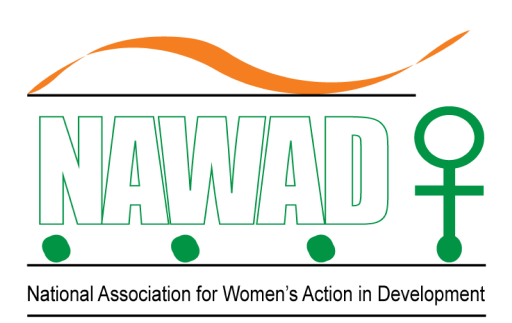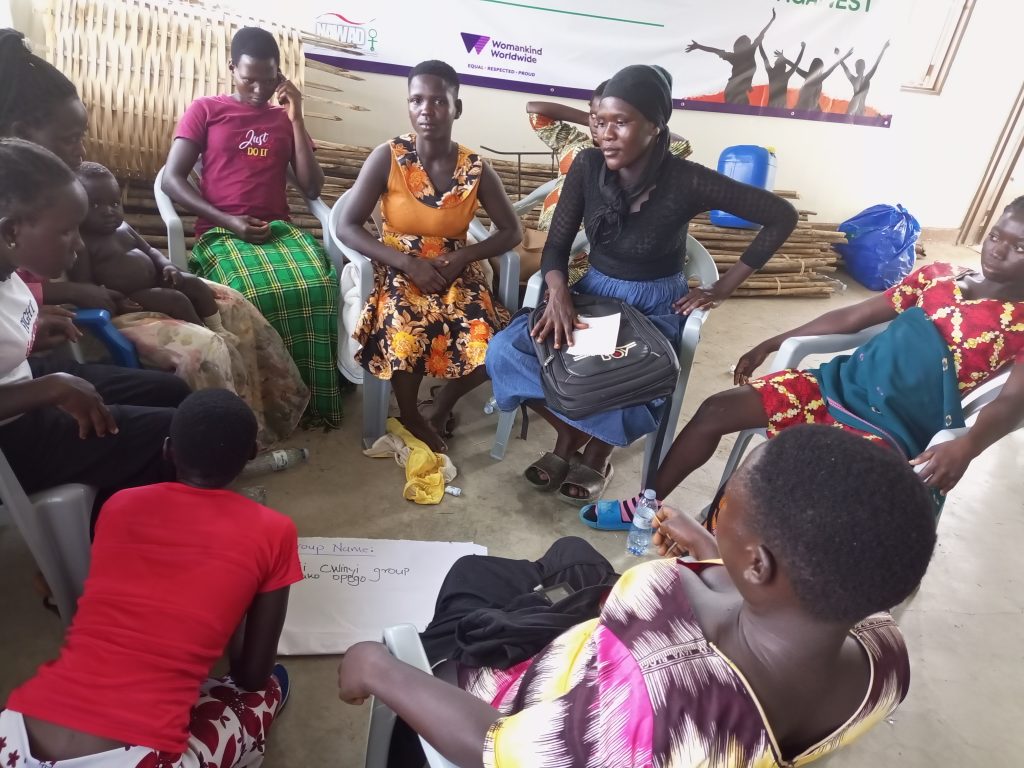
Women and girls face diverse socioeconomic and environmental injustices which are promulgated by the cultural norms and patriarchy nature of society in Uganda. They have less control over sexual and reproduction decision making which perpetrates risks of intimate partner violence and sexual violence, lack of access to productive resources, and limited voice in democratic and governance processes.
What do we do?
To contribute to efforts towards gender equality in Uganda, Womankind Worldwide is supported NAWAD to strengthen community action against sexual and Gender-based Violence (SGBV) in Nwoya district, northern Uganda by providing platforms through which young women and girls can access age-appropriate Sexual Reproductive Health and Rights (SRHR) information and services while targeting 200 adolescent girls in and 80 teenage mothers out of school.
As a result, young women and girls in the area are able to make informed decisions while engaging in sexual activities and are able to protect themselves against sexual violence. NAWAD is able to fuel community transformation through its works by engaging other key players in GBV protection and prevention such as cultural, local and religious leaders, schools administration, parents and community agents of change. NAWAD uses spouses and other males in the communities as change agents to challenge male supremacy to combat SGBV.
How do we do it?
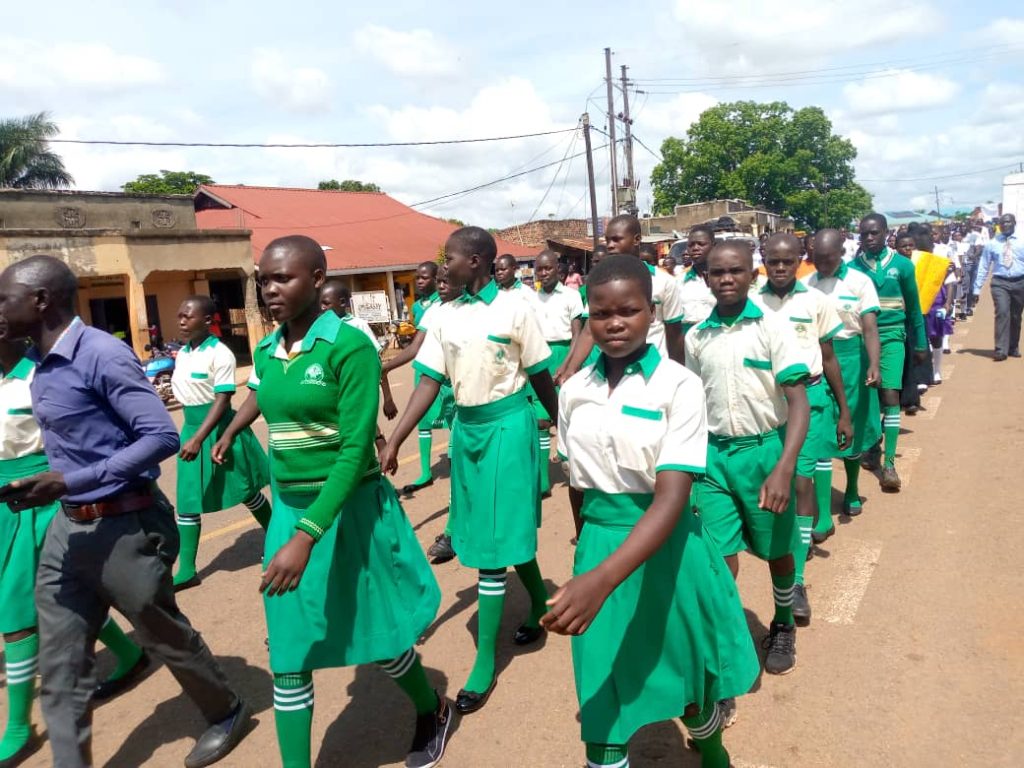
Awareness Building
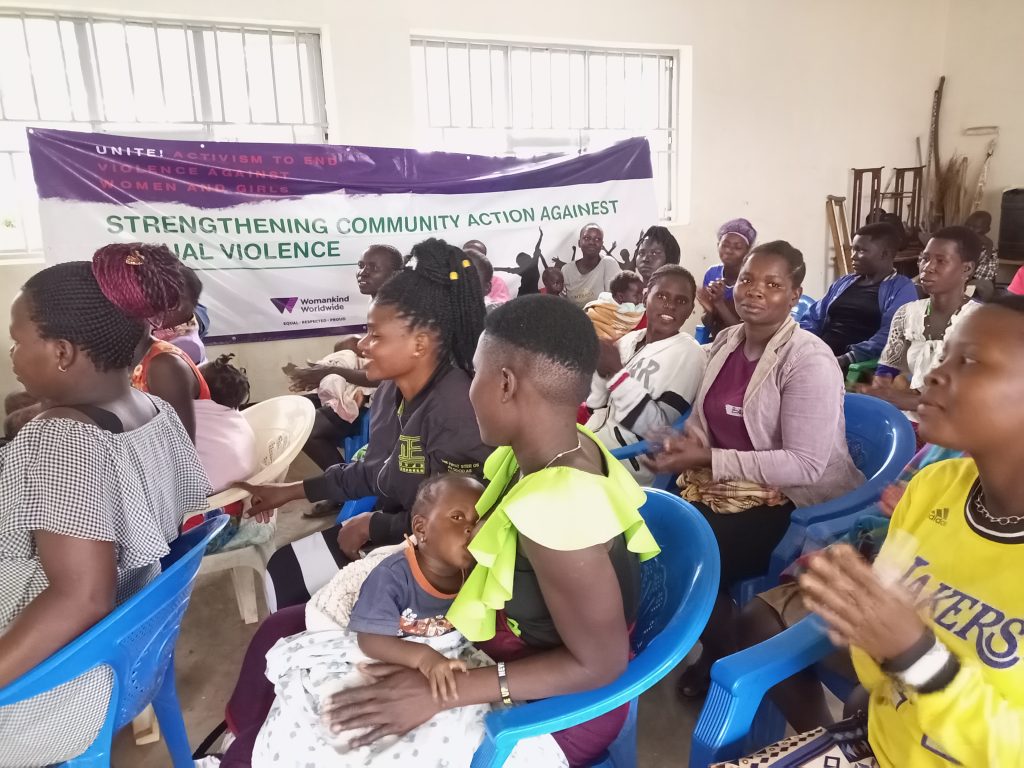
Training in Sexual Reproductive Health and Rights (SRHR)
Training of community Agents on SGBV prevention and the GBV referral pathways
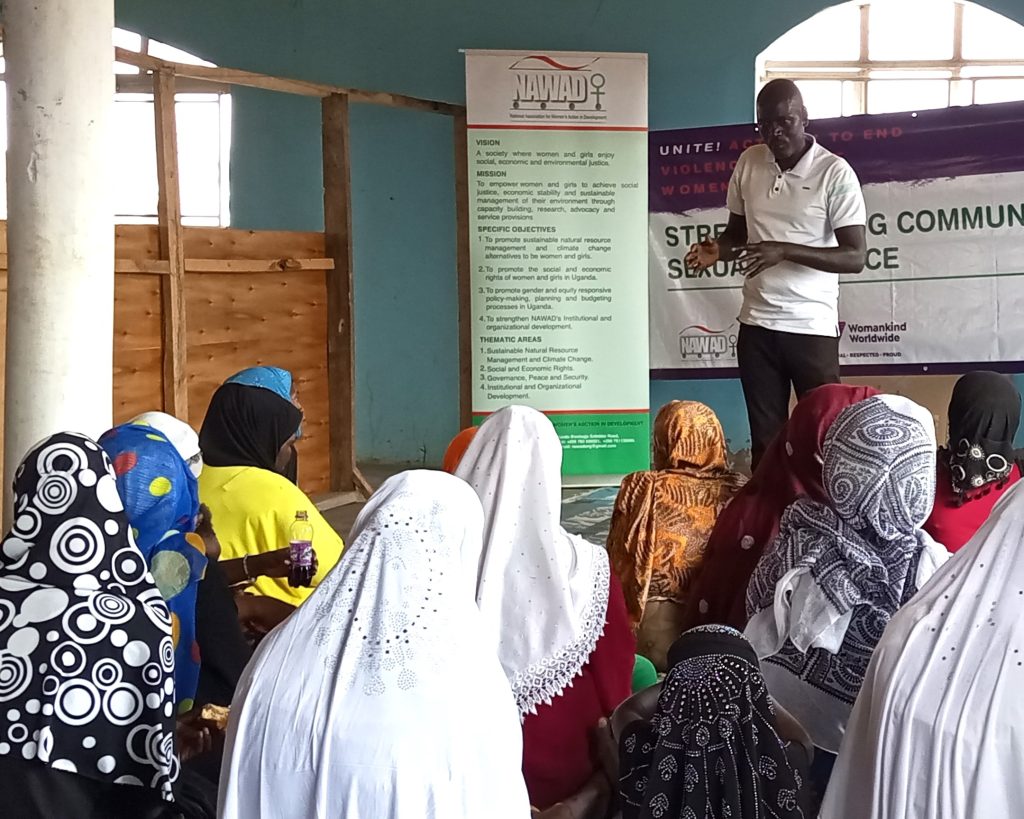
Teenage mothers’ livelihood empowerment clubs
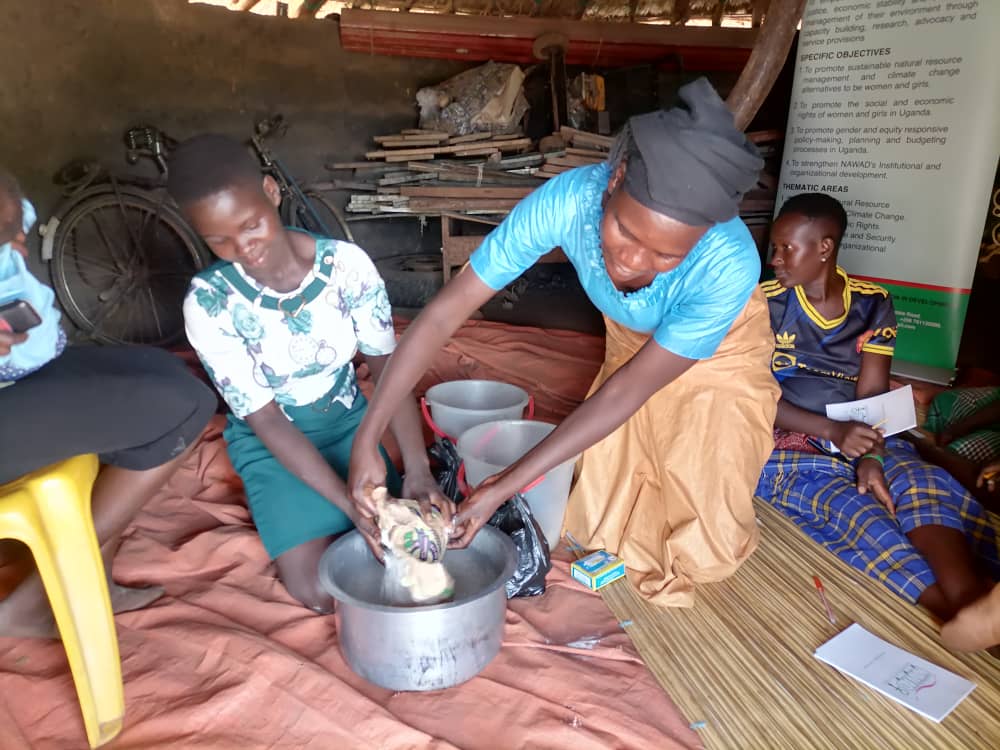
Notable Achievements
- NAWAD has trained a total of 200 student leaders in schools along with the schools’ senior women and male teachers (these play a role in promoting learners’ emotional, social and physical well-being in schools) have been trained following the Plan International’s tool kit for adolescents and young people while focusing on modules 1, 2 and 3on the overview of SRHR, understanding sexuality and adolescent growth and development.
- NAWAD has six livelihoods empowerment clubs established among teenage mothers in Nwoya distict. The clubs are aiming at improving the income status of these mothers to resist and protect themselves from SGBV. The livelihoods selected in these clubs include baking and poultry keeping where the teenage mothers were trained and skilled to run small businesses and provided with start-up capital to kick off.
- To emphasize wellness among young women and girls, NAWAD supports sports and games activities like soccer, netball, and board games to foster a state of well-being where young women and girls including survivors of violence can cope with stress, depression or anxiety.
- To challenge the negative and discriminatory social norms and practices that fuel SGBV in communities, NAWAD has trained a total of 40 community change agents on SGBV protection and the GBV referral pathways. The trainings engaged religious, cultural, local leaders, role model couples to voluntarily serve as GBV watchdogs or scouts as influencers of social change at community level. We believe that through engagement of these players as influencers of change in the struggle to dismantle negative and discriminatory social norms and practices, is a step-in progress to reduce forced child marriages and teenage pregnancies in Nwoya district.
- Awareness campaigns about the dangers of SGBV, its prevention and the referral pathways have been conducted through radio talk shows, community drives and dialogues key players including , cultural, local government and religious leaders, in communities, schools’ administration in schools, and parents in at family level.
